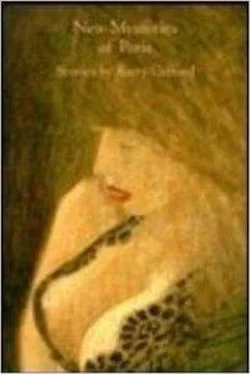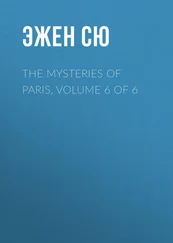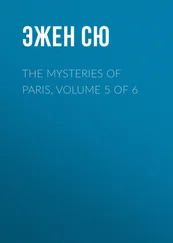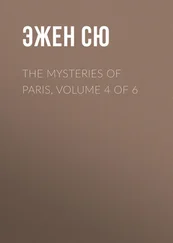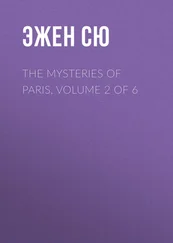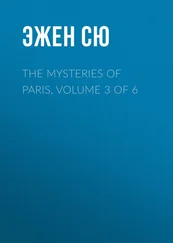Барри Гиффорд - New Mysteries of Paris
Здесь есть возможность читать онлайн «Барри Гиффорд - New Mysteries of Paris» весь текст электронной книги совершенно бесплатно (целиком полную версию без сокращений). В некоторых случаях можно слушать аудио, скачать через торрент в формате fb2 и присутствует краткое содержание. Жанр: Проза, на английском языке. Описание произведения, (предисловие) а так же отзывы посетителей доступны на портале библиотеки ЛибКат.
- Название:New Mysteries of Paris
- Автор:
- Жанр:
- Год:неизвестен
- ISBN:нет данных
- Рейтинг книги:3 / 5. Голосов: 1
-
Избранное:Добавить в избранное
- Отзывы:
-
Ваша оценка:
- 60
- 1
- 2
- 3
- 4
- 5
New Mysteries of Paris: краткое содержание, описание и аннотация
Предлагаем к чтению аннотацию, описание, краткое содержание или предисловие (зависит от того, что написал сам автор книги «New Mysteries of Paris»). Если вы не нашли необходимую информацию о книге — напишите в комментариях, мы постараемся отыскать её.
New Mysteries of Paris — читать онлайн бесплатно полную книгу (весь текст) целиком
Ниже представлен текст книги, разбитый по страницам. Система сохранения места последней прочитанной страницы, позволяет с удобством читать онлайн бесплатно книгу «New Mysteries of Paris», без необходимости каждый раз заново искать на чём Вы остановились. Поставьте закладку, и сможете в любой момент перейти на страницу, на которой закончили чтение.
Интервал:
Закладка:
The unpredictable laughter was not her only social aberration. Nadja refused to be photographed. True, photographs of Nadja do exist, but they were taken surreptitiously, without her knowledge; usually when she was drunk.
Contrary to what most of my acquaintances thought at the time, Nadja was the least mysterious person I have ever met. Everything about her was obvious. Her motives were plain, she desired love, sanity, colour — all healthy pursuits. Failure on any one count can hardly be held against Nadja. Disgrace, after all, is merely a manifestation of value. The price of anything is always set in advance. Nadja made me see this. Truth is perhaps more horrible than anyone would dare admit.
* * * *
She was standing there in the dream, the gun still in her hand pointing down at the body, when the cops broke in. It was Nadja with a Barbara Stanwyck hairdo in a black robe, a silk one with gold brocade on the wide lapels. ‘I shot him in the face,’ she said, ‘and he tumbled like laundry down a chute.’ Those were her exact words. They were fresh in my mind when I woke up. The name of the movie was Riffraffs that much I could remember. But it wasn’t real, it was a dream, right? I hadn’t seen Nadja in four years, and I knew who the man on the floor had to be.
* * * *
One morning Nadja awoke and could not see out of her right eye. She sent a pneu asking me to meet her at the Café des Oiseaux that afternoon. ‘It’s awful and wonderful,’ Nadja said as soon as I sat down at her table. ‘There is a cloud in my eye, floating across the centre.’
‘Is it any particular colour?’ I asked.
‘Red,’ said Nadja. ‘Like a veil of blood.’
‘Perhaps it is blood,’ I said. ‘Have you made arrangements to see a doctor?’
‘Doctors can only destroy,’ Nadja said. ‘Have you a cigarette?’
I gave her one, lit it and watched her blow out the smoke.
‘Usually cigarette smoke is blue,’ she said. ‘Mixed with the red it’s actually quite beautiful, like two ghost ships passing through one another on the rolling sea.’
I asked Nadja what she intended to do about this problem.
‘Nothing.’ she said. ‘So I have one normal eye and one very interesting eye. The left shall be the practical side, the ordinary eye, useful and necessary. The right shall be the dream side, the indefinable, the exquisite and ungraspable. The right eye is my entrance to a drifting, unstable world ruled by colour and magic. Nothing is absolute there, it is a true wilderness. Covered by this thin red veil realities are made bearable by their vagueness.’
I suggested to Nadja that the presence of blood in her eye, if indeed that was what it was, might be a sign of a more serious condition, a remark that caused her to explode with laughter.
* * * *
Who was Madame Sacco? Unlike Madame Blavatsky no religion was founded in her name, and also unlike the Russian she was not a charlatan. Her real name was Paulette Tanguy. born in Belleville. She set up shop as Mme Sacco on the rue des Usiness several months after the death of her third husband, an Italian, whose name I’ve forgotten, though I do not believe it was Sacco. In any case, he was seldom mentioned, and neither was she very forthcoming regarding his two predecessors. As to how Mme Sacco acquired her gift of clairvoyance, I never knew. She was never mistaken about me and I trusted her completely.
Mme Sacco knew of Nadja’s existence prior to my ever mentioning her. When Mme Sacco told me about my pre-occupation with a woman named ‘Hélène’, I was necessarily astonished. Only a day before Nadja had said to me, seemingly apropos of nothing, ‘I am Hélène.’ These women were already connected! My reputation in certain circles for naivety was apparently not altogether undeserved.
They did not, however, get along well. Nadja distrusted clairvoyants — ‘seers’ she called them, rudely. ‘Even if they know what they’re talking about,’ Nadja said, ‘even if their predictions are accurate, what right have they to inform?’
Mme Sacco sensed immediately Nadja’s hostility, and her performance in Nadja’s presence was subdued. ‘There is a great deal I could tell you about this woman,’ Mme Sacco said after Nadja had departed, ‘but she is opposed to it and therefore I cannot pursue her. I do know,’ and here Mme Sacco smiled, ‘that she is dishonest, she feigns madness and is a danger to you.’
‘Do you mean,’ I asked, ‘that Nadja is sane? That she intends to harm me?’
‘Oh no,’ Mme Sacco said, smiling even more handsomely than before, ‘she is genuinely deranged. Her pretending is the way she fools herself. As to harm, consider what you already do to yourself. This Nadja is a brief disruption in your life.’
Walking away from Mme Sacco’s I heard laughter coming from above me. I looked up and saw a boy sitting on a windowsill, playing with a live monkey. It’s me, I thought. I am the monkey.
* * * *
Nadja, why is it so difficult to remember exactly what you looked like? Your precise words escape me also. My recreations are passable but not accurate. You made me examine my actions, forced me to consider possibilities other than the obvious. I am desperate now for the absolute taste of you.
I am in my studio at one minute past four o’clock in the afternoon, listening to the traffic pass in the street below my open windows. The sky is solidly grey with perhaps a stripe of white. I am embarrassed by my eagerness for night, the darkness, which I never used to be.
One evening in Père-Lachaise, as we strolled among the graves, you began to sing — some children’s song, I believe — and I was horrified. I dared not mention the fact to you, knowing you would ridicule my timidity; but I could not suppress the unholy feeling I derived from your merrily singing in the cemetery. Virtually everything you did disturbed, upset, surprised me. And yet I suffer.
* * * *
Wherever Nadja is must be a better place than this, especially for her. I prefer to imagine Nadja in paradise, satisfied at last with the circumstances of her existence. She could never be happy in conventional life, better than she is allowed the latitude of feeling beyond desire. That her behaviour was considered bizarre, her appearance unsightly, and she found herself rejected on her own terms, could not have given Nadja much hope for even an acceptable afterlife.
I recall the time Nadja decided she would be an artist, a painter. She borrowed money from me for materials and did not leave her room at the Hotel Sphinx for several days. At the end of her siege Nadja emerged with one painting, which she showed to me at the Dôme. It was a self-portrait, Nadja Among the Carnivores , she called it. In the painting Nadja was depicted nude, walking in a street surrounded by ghoulish figures: huge goblins with beaks, monstrous dark shapes, devils with pitchforks, deformed crones, a conglomeration of hideous Bosch-like characters. The style was, as one might imagine, crude, the technique primitive. One could not, however, deny its power, the unsettling effect of the painting.
I told Nadja that I was impressed by the force of her work, and that I would gladly purchase the painting from her. She refused my offer. ‘It is not for sale,’ she said. ‘Now that you’ve seen it, I can destroy it.’ I begged her not to, but at that moment she began tearing the canvas apart, shredding it into strips. ‘Now,’ Nadja said, smiling, ‘I have been an artist. You are my witness. I never have to prove myself again.’
* * * *
My feeling about Nadja is ultimately one of sadness, loss, but not without a certain degree of satisfaction in having kept faithful to my perception of her intentions. I do not pretend to have understood Nadja, though I remain to verify her existence.
Читать дальшеИнтервал:
Закладка:
Похожие книги на «New Mysteries of Paris»
Представляем Вашему вниманию похожие книги на «New Mysteries of Paris» списком для выбора. Мы отобрали схожую по названию и смыслу литературу в надежде предоставить читателям больше вариантов отыскать новые, интересные, ещё непрочитанные произведения.
Обсуждение, отзывы о книге «New Mysteries of Paris» и просто собственные мнения читателей. Оставьте ваши комментарии, напишите, что Вы думаете о произведении, его смысле или главных героях. Укажите что конкретно понравилось, а что нет, и почему Вы так считаете.
